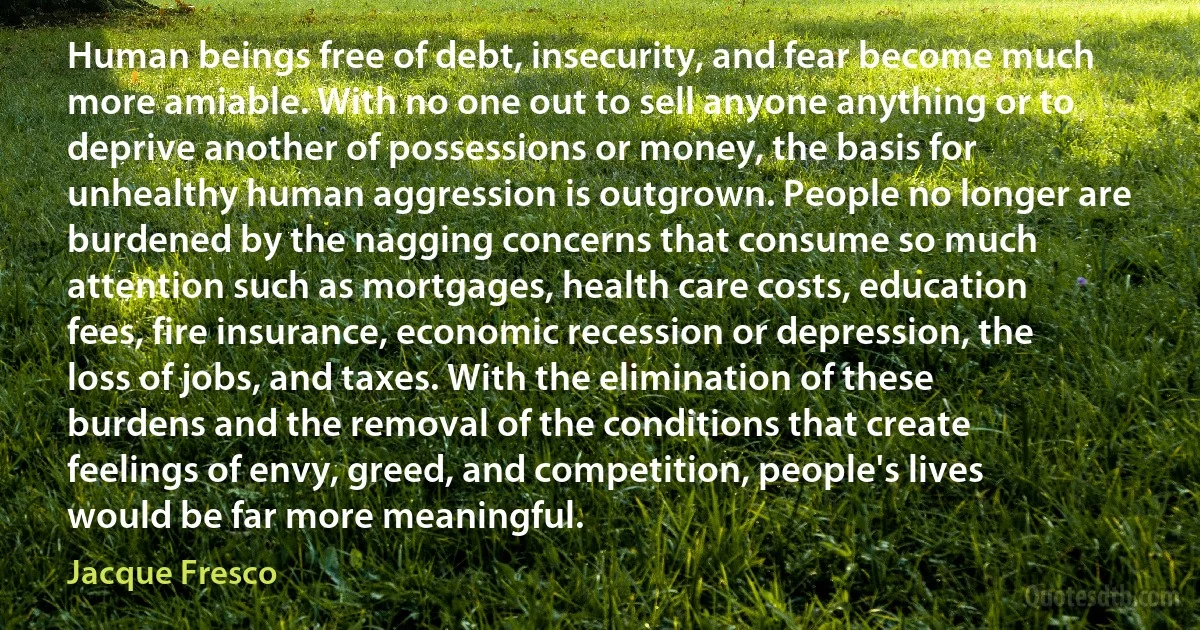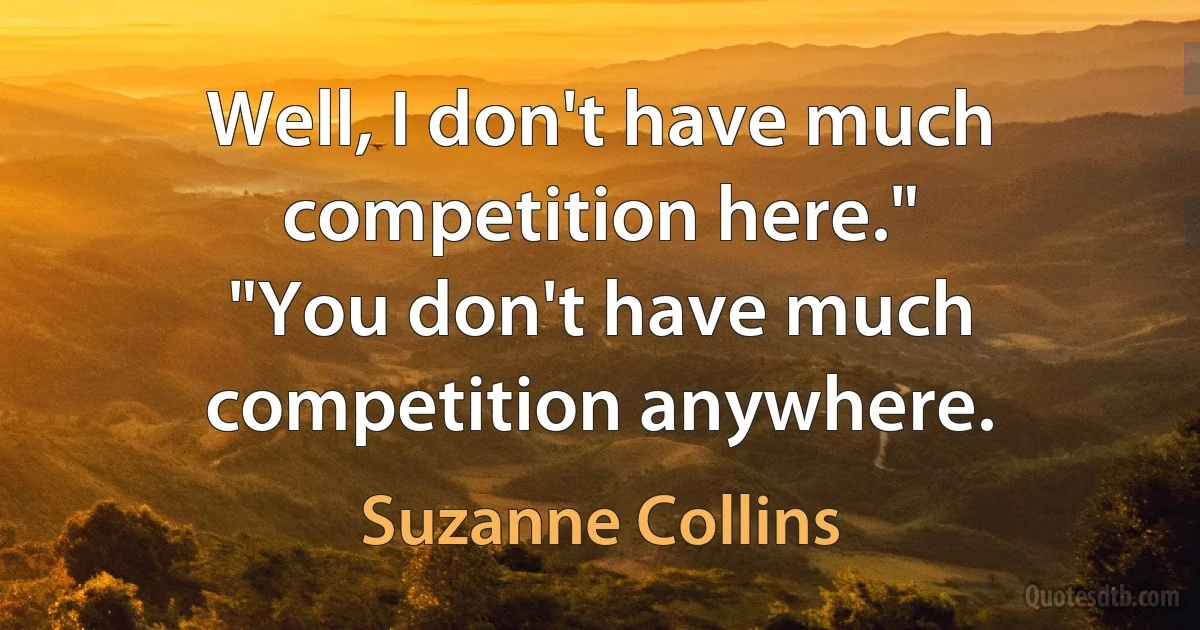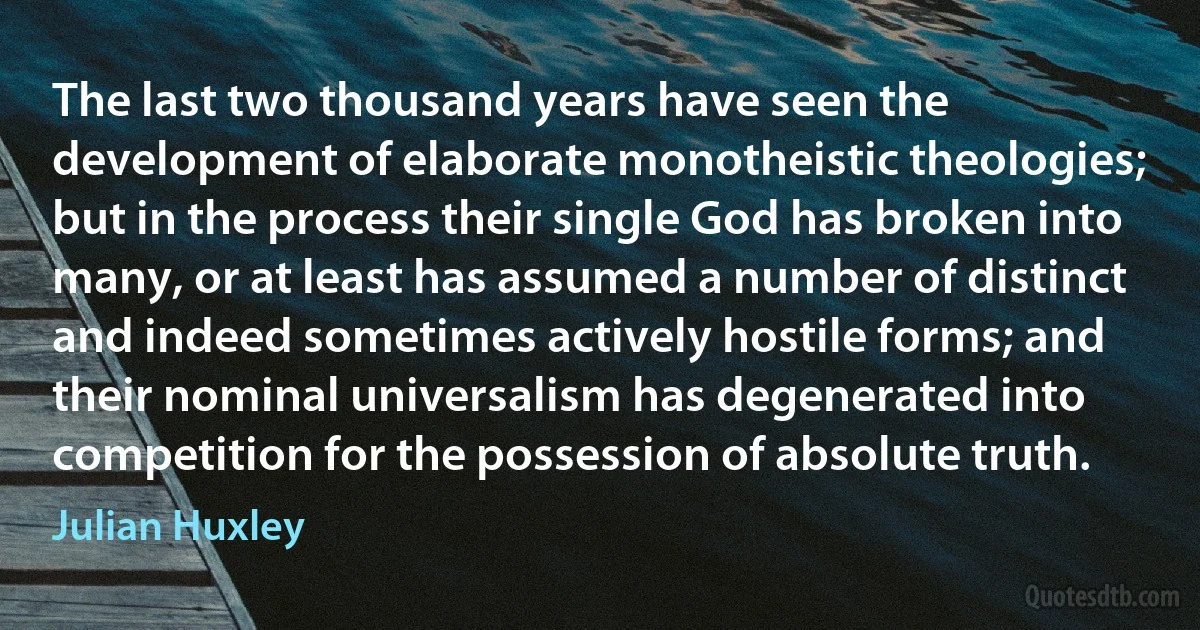Competition Quotes - page 12
There's a misconception that survival of the fittest means survival of the most aggressive. The adjective 'Darwinian' used to refer to ruthless competition; you used to read that in business journals. But that's not what Darwinian means to a biologist; it's whatever leads to reproductive success.

Steven Pinker
People like to come up to me and tell me that I've got nice ink. Except these tattoos aren't just decorations. They are declarations. Every tattoo I have tells its own story about who I am. Drug-free. Honor. And a war against the system. See I'm not some punk kid looking for the next thrill. I'm a highly disciplined athlete, craving to compete with the very best. My obsession is competition and my addiction is wrestling. My name, is C...M... Punk.

Phil Brooks
Even the matter of religious liberty, which has cost the world more tears, more blood and more agony, than any other interest, will be helped by his presence. I know of no church, however tolerant; of no priesthood, however enlightened, which could be safely trusted with the tremendous power which universal conformity would confer. We should welcome all men of every shade of religious opinion, as among the best means of checking the arrogance and intolerance which are the almost inevitable concomitants of general conformity. Religious liberty always flourishes best amid the clash of competition of rival religious creeds.

Frederick Douglass
is eating up large portions of the Middle East. They've become rich. I'm in competition with them. They just built a hotel in Syria. Can you believe this? They built a hotel. When I have to build a hotel, I pay interest. They don't have to pay interest, because they took the oil that, when we left Iraq, I said we should've taken.

Donald Trump
The concept of the « struggle for existence » has been applied to microbial interrelationships in nature in a manner comparable to the effects assigned by Darwin to higher forms of life. It has also been suggested that the ability of a microbe to produce an antibiotic substance enables it to survive Giom. in competition for space and for nutrients with other microbes. Such assumptions ppear to be totally unjustified on the basis of existing knowledge. Before we proceed with a discussion of the formation and activities of antibiotics under natural conditions, we must consider certain fundamental aspects of the problem of antibiotic production under controlled laboratory or factory conditions... All the discussion of a "struggle for existence" in which antibiotics are supposed to play a part, is merely a figment of the imagination, and an appeal to the melodramatic rather than the factual.

Selman Waksman
The view of evolution as a chronic bloody competition among individuals and species, a popular distortion of Darwin's notion of "survival of the fittest," dissolves before a new view of continual cooperation, strong interaction, and mutual dependence among life forms. Life did not take over the globe by combat, but by networkiing. Life forms multiplied and complexified by co-opting others, not just by killing them.

Lynn Margulis
Our nation should always derive its character directly from the people and let this be the strength and the image to be presented to the world - the character of the American people.
To our friends and allies I say that what unites us through our common dedication to democracy is much more important than that which occasionally divides us on economics or politics. To the nations that seek to lift themselves from poverty I say that America shares your aspirations and extends its hand to you. To those nation-states that wish to compete with us I say that we neither fear competition nor see it as an obstacle to wider cooperation. To all people I say that after two hundred years America still remains confident and youthful in its commitment to freedom and equality, and we always will be.

Jimmy Carter
A final aspect of all open access orders is Schumpeter's notion of creative destruction, one of the most powerful descriptions of a competitive, open access economy. When Schumpeter wrote Capitalism, Socialism, and Democracy in the early 1940s, the economic theory of perfect competition among atomistic firms (i. e., firms too small to have market power) had come under sustained attack as unrealistic. Large and powerful economic organizations dominated the new economy, and their behavior did not match the textbooks. Despite this dominance, the economy produced historically unprecedented, sustained economic development. Schumpeter asked, How could large businesses that were supposed to choke off competition and growth nonetheless generate such spectacular productivity increases in a world that seemed ever more competitive?

Douglass North
The truth is that economic competition is the very opposite of competition in the animal kingdom. It is not a competition in the grabbing off of scarce nature-given supplies, as it is in the animal kingdom. Rather, it is a competition in the positive creation of new and additional wealth.

George Reisman
Let us say that the freedom exists, but it is limited to the one unique act of choosing the profession. Afterward all freedom is over. When he begins his studies at the university, the doctor, lawyer, or engineer is forced into an extremely rigid curriculum which ends with a series of examinations. If he passes them, he receives his license and can thereafter pursue his profession in seeming freedom. But in doing so he becomes the slave of base powers; he is dependent on success, on money, on his ambition, his hunger for fame, on whether or not people like him. He must submit to elections, must earn money, must take part in the ruthless competition of castes, families, political parties, newspapers. In return he has the freedom to become successful and well-to-do, and to be hated by the unsuccessful, or vice versa.

Hermann Hesse



